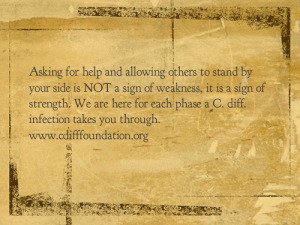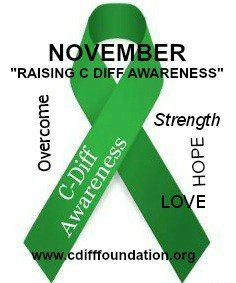 Preventing a C. diff. infection (CDI) is a multidisciplinary effort in every setting.
Preventing a C. diff. infection (CDI) is a multidisciplinary effort in every setting.
It requires everyone, from physicians to nurses, pharmacy to the microbiology laboratory, housekeeping to hospital leadership, family members, patients, visitors, and especially infection prevention and control staff, to do their part.
Let us not dismiss the importance of hand hygiene (hand-washing) or environmental disinfection in all settings…..from healthcare facilities to outpatient clinics to physician offices to the home.
Soap and water should always be used preferentially over alcohol-based hand rubs if the hands become grossly contaminated or if gloves were not worn.
http://cdifffoundation.org/category/infection-control/
Enhanced cleaning of the environment with sporicidal methods is clearly indicated if your facility has issues with CDI cases occurring repeatedly in the same room. Before changing the approach to cleaning the environment, it is important to make sure that the environment is being cleaned in the first place—the sporicidal agent will not have the opportunity to work if it is never applied.
For Home Care Information: http://cdifffoundation.org/category/home-care/
Existing data indicate that the most effective methods to prevent CDI in hospitals are:
Improving antimicrobial (antibiotic) prescribing; Promptly identifying patients with CDI and place them on contact precautions, and Making sure that healthcare workers are compliant with contact precautions, including gowns, gloves, use of dedicated equipment whenever possible, and ensuring that non-dedicated equipment is adequately cleaned between patients.
http://cdifffoundation.org/category/antibiotic-news/
Sources:Medscape, CDC





